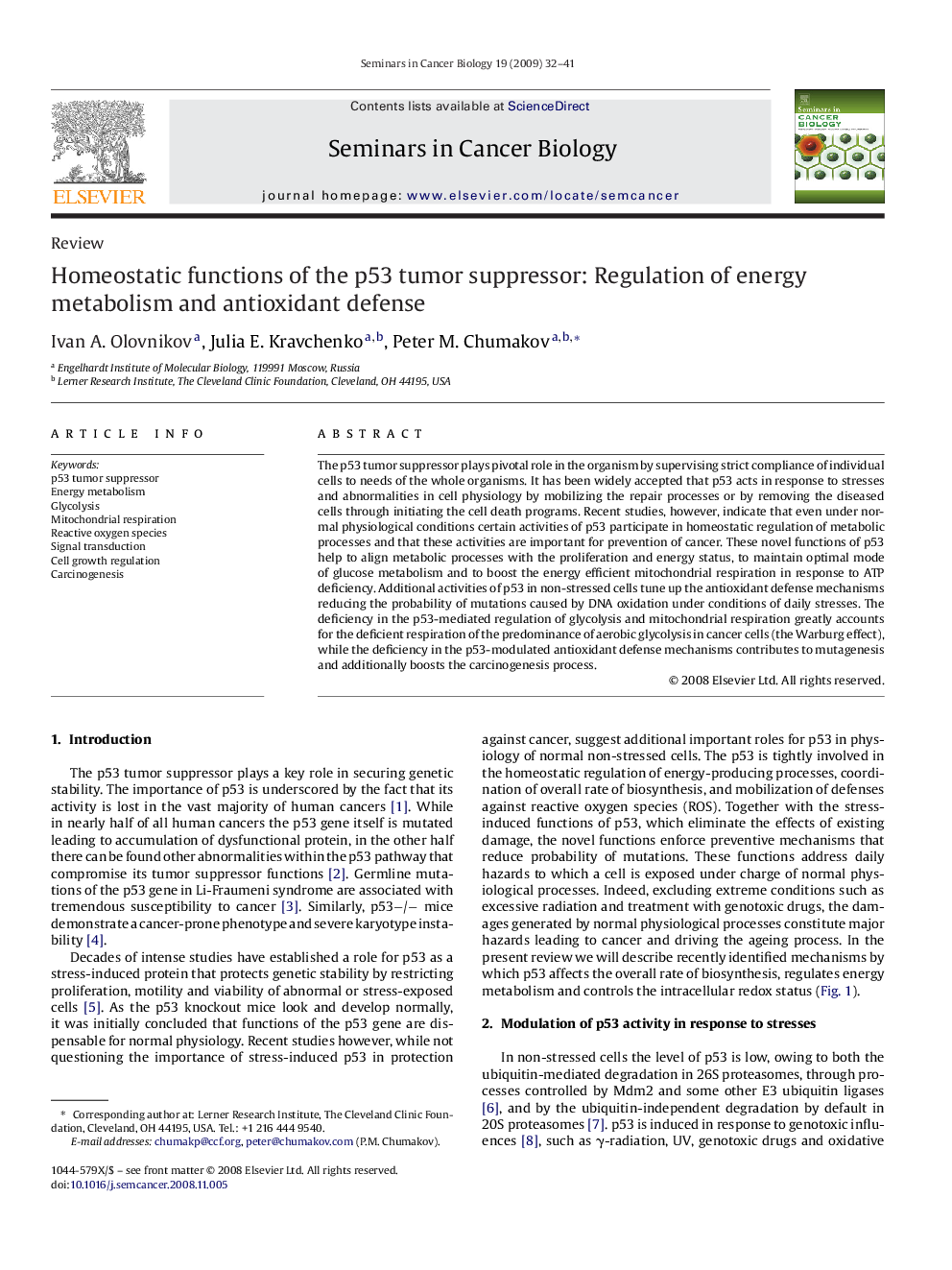| Article ID | Journal | Published Year | Pages | File Type |
|---|---|---|---|---|
| 2023753 | Seminars in Cancer Biology | 2009 | 10 Pages |
The p53 tumor suppressor plays pivotal role in the organism by supervising strict compliance of individual cells to needs of the whole organisms. It has been widely accepted that p53 acts in response to stresses and abnormalities in cell physiology by mobilizing the repair processes or by removing the diseased cells through initiating the cell death programs. Recent studies, however, indicate that even under normal physiological conditions certain activities of p53 participate in homeostatic regulation of metabolic processes and that these activities are important for prevention of cancer. These novel functions of p53 help to align metabolic processes with the proliferation and energy status, to maintain optimal mode of glucose metabolism and to boost the energy efficient mitochondrial respiration in response to ATP deficiency. Additional activities of p53 in non-stressed cells tune up the antioxidant defense mechanisms reducing the probability of mutations caused by DNA oxidation under conditions of daily stresses. The deficiency in the p53-mediated regulation of glycolysis and mitochondrial respiration greatly accounts for the deficient respiration of the predominance of aerobic glycolysis in cancer cells (the Warburg effect), while the deficiency in the p53-modulated antioxidant defense mechanisms contributes to mutagenesis and additionally boosts the carcinogenesis process.
